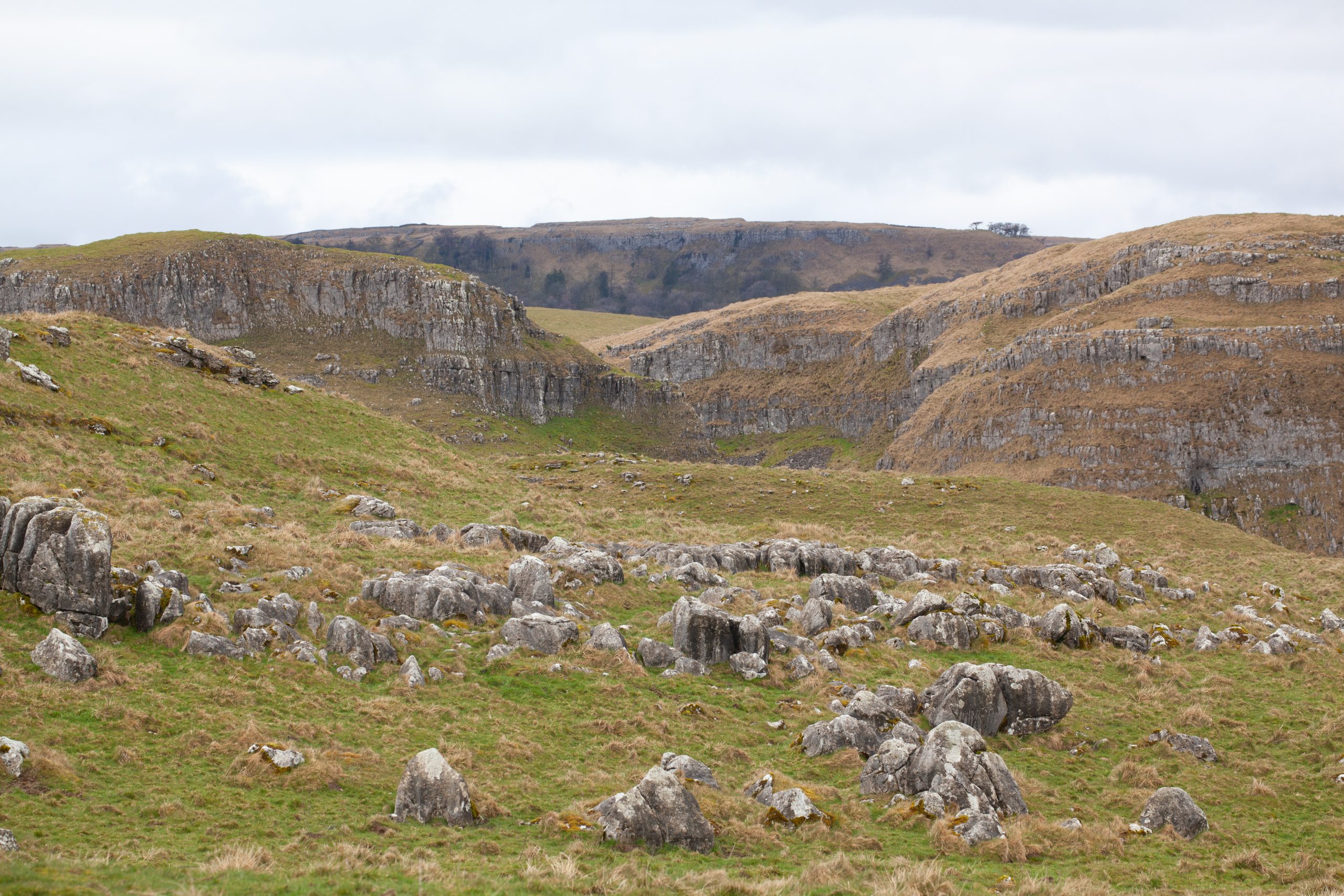
2ND APRIL, 2024
Hello.
…from the Yorkshire Dales, where we’re marking my latest in an alarmingly long line of birthdays. I’m not much of a fan of getting older, but I suppose the alternative is far worse—and it’s a great excuse to re-visit some favourite haunts.

Some stuff I thought worth sharing
- The women who found liberation in seaweed
How a shared love of algae got a community of women hooked on marine science. - Strike at the knee: Italy, 1943
Despite not being particularly interested in military history, I found Malcolm Gaskill’s account of the gruelling Italian campaign of the Second World War absorbing—not least because of the quality of the writing. - Last summer, I went on a philosophical guided walk with local philosopher Paul Knights. In a recent post, Philosophy of Landscape: narrative, ethics, welfare, Paul explores how philosophy can help deepen and enrich our understanding and appreciation of landscape.
- Geologists reject declaration of Anthropocene epoch
After protracted, occasionally heated debate, the International Union of Geological Sciences has decided not to recognise a new geological epoch marked by our own species’ impact on the planet. But the term Anthropocene is unlikely to go away. For more analysis, see: Golden spike or no golden spike—we are living in the Anthropocene. - How did the Big Bang get its name? Here’s the real story
Astronomer Fred Hoyle supposedly coined the catchy term to ridicule the theory of the Universe’s origins. 75 years on, it’s time to set the record straight. (True story, my great-aunt and -uncle, Lucy and Fred, once bumped into Fred Hoyle while visiting Jodrell Bank Observatory. They recognised him off the telly. Apparently, he was utterly charming, chatting happily with them at length.) - Einstein on the run: how the world’s greatest scientist hid from Nazis in a Norfolk hut
How the physicist’s refuge from assassins on a British heath changed the course of history. - Maria Popova’s vivid life in the margins
The writer and editor discusses 17 years of The Marginalian website, and her ‘compassion for consciousness’. - Collections: the journey of the Roman gladius and other swords
It’s not just species that evolve; cultural artefacts can, too. This piece explores the evolution of the famous Roman gladius sword. - The end of species
This excerpt from a new book explores the importance and difficulties of assigning names to species.
Recent reading

Buried: an alternative history of the first millennium in Britain by Prof. Alice Roberts
A fascinating read, exploring various funerary rituals observed in first-millennium Britain, and the ways in which we might interpret them.
Serendipty-doo-dah!
I’ve written before about the unavoidably provisional nature of factual writing, of how you can never hope to write definitively on any subject, and of how new facts will continue to emerge. I take comfort from this: you can’t hope to cover everything about your chosen topic, so cut yourself some slack and get on with it!
My latest, spookily timely, example of new facts emerging came last month. In the most recent edition of my Friends of Charles Darwin newsletter, I wrote about an intriguing new study that finally seems to explain why moths and other night-flying insects are ruinously drawn to artificial lights. On reflection, I realised this would make an excellent topic to write about in my Darwin book. So I made notes on the scientific paper, linked in some other notes I’d made previously from other sources, did some more digging and note-making, and eventually put together a detailed chapter outline. As I sat down to start writing the chapter the next day, the very first post I saw on one of my social media feeds leapt out of the screen and slapped me in the face. It announced a new paper, published that very morning, describing how certain moths seem to be evolving to lessen the likelihood of their encountering artificial lights. It turned out the moths used in this study were the very same specimens that had been used in the paper I had mentioned in my newsletter. Furthermore, the person posting the social-media link to the new paper was one of the authors on both papers.
So, my chapter was out-of-date before I’d written a word of it! Which meant, of course, I had to read the new paper. Which led me down yet another research rabbit-hole. Which called for a complete revision of my chapter outline… Which, I’m glad to say, resulted in a far better chapter.
I can’t help feeling it would be a whole lot easier writing fiction!
And finally…
Thanks as always for making time to read this newsletter. If you enjoyed it, please tell your friends.
Take care, and see you next time.
Richard
richardcarter.com
Leave a Reply